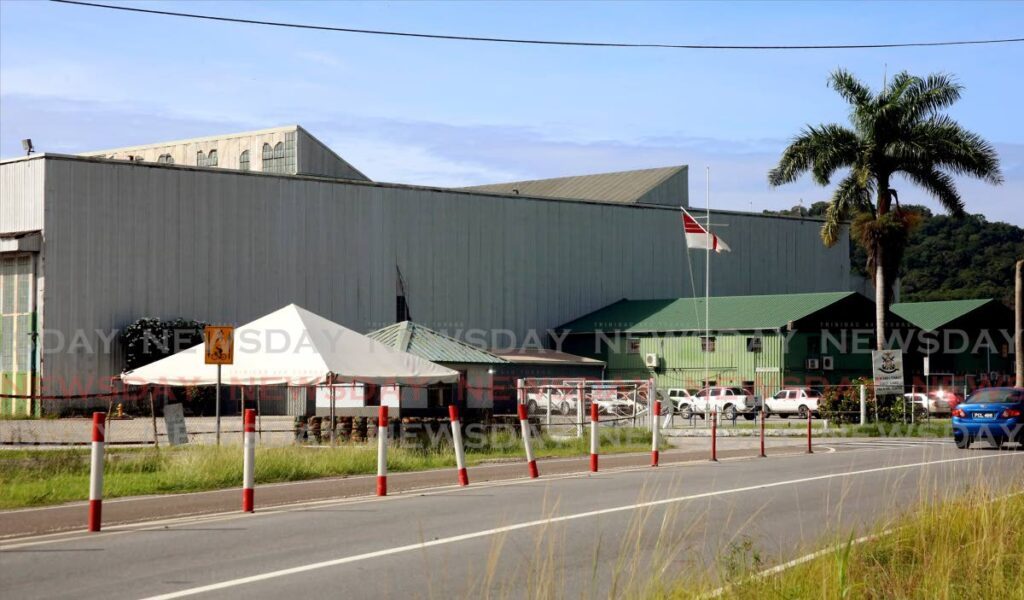$2.4m in damages for Venezuelan boy illegally detained at heliport

IN what is possibly the largest single award of damages ordered by a court, the State has been ordered to pay a Venezuelan boy a whopping $2.4 million for its “shocking and appalling conduct" in keeping him at the heliport in Chaguaramas for 456 days.
He was physically and psychologically harmed by the illegal detention, the court found.
Justice Margaret Mohammed made the order on March 22 in a stinging rebuke of the State’s actions both in its continued detention of the boy and its actions after his attorneys challenged it in various applications to the court, which eventually went to the Privy Council and back.
Mohammed, in ruling against the State, ordered the release of the boy and his mother. The two were part of a larger group which entered TT illegally in November 2020. They were escorted out of TT by the Coast Guard but returned days later. They were held again and detained in quarantine and then on deportation orders.
The boy was 13 when he was detained and 15 by the time he was eventually released.
The judgment detailed the "horrors" endured by the child while at the heliport, which was used as a detention centre for illegal migrants at the start of the covid19 pandemic.
In her ruling, Mohammed was critical of the State’s actions, calling them “egregious, shocking and appalling.”
She also said the State had two chances to release him from detention in his best interest, but chose not to do so, in “further proof that the defendants did not care" about his suffering. She said the boy could have been released to his father, and not doing so caused significant harm to their relationship.
In her 114-page decision on damages, the judge added, “The overwhelming evidence was that the treatment of the claimant became worse as his detention continued...
“Further, the claimant’s exposure to explicit sexual acts during his detention at the heliport also violated his innocence as a minor and corrupted his adolescence.”
She also referred to assessments that the boy became depressed and was not given proper meals or adequate drinking water while he was detained.
“The overcrowding of the quarantine and dormitory areas exacerbated the poor conditions in which the claimant was kept.
“The claimant’s life was put at risk on a daily basis…"
She pointed out that he did not violate any laws, as he had not decided to enter TT illegally and had not been charged with or convicted of any offence, but was treated as a criminal and his reputation significantly damaged.
Referring to various reports, she said the State knew the heliport was not suitable to detain any minor, having been told so on several occasions, over two years.
“Yet they intentionally and deliberately chose to disregard any of the recommendations made…”
She said the State “systematically ignored” any recommendation to improve the conditions at the heliport for the boy.
The effect, she said was “to cause the most suffering and harm on the claimant as he was a migrant child.”
State concealed evidence
The judge also said there was evidence the State sought to "systematically" conceal “evidence relevant to the assessment of damages before the court.”
She said the effect of this was to mislead her, also describing it as “shocking and alarming.”
“Given this conduct of the defendants, this court has a duty to uphold the rule of law and protect its own process, as the failure to do so has the potential to undermine public confidence in the administration of justice which cannot be condoned.
“In my opinion, this conduct by the defendants is shocking and deplorable and cannot be condoned...
But, she said, that no civil or criminal penalties would be imposed on the defendants, or agents for the conduct that has been exposed by the claim was "a significant reason for justifying a substantial award of exemplary damages to show the court’s disapproval of such conduct and to punish the defendants.”
Earlier ruling a landmark
The judge’s assessment of damages followed her previous ruling that the State was liable for the boy’s false imprisonment.
In March 2022, the Privy Council held the boy’s detention for 19 months was unlawful. The London-based court deferred to Mohammed the question of whether the period of his detention was reasonable.
The landmark ruling also dealt with the exercise of power by the State to detain children using an unwritten policy that when a parent and child enter TT illegally, a deportation order is also taken as a deportation order against the child.
They held the child had been subject to “a non-judicial detention,” and said: “Lawful authority to detain cannot be derived from the respondent’s policy.”
Award includes interest, costs
Friday’s award also includes 2.5 per cent interest from January 6, 2023. The money must be deposited into court. The registrar of the Supreme Court was also directed to put the money in a high-interest-bearing account for the boy.
The State was also ordered to pay $169,000 in costs.
The boy was represented by Gerald Ramdeen and Dayadai Harripaul. Stefan Jaikaran and Rachel Wright appeared for the Chief Immigration Officer and the Attorney General.
Mohammed’s ruling comes after another judge, in November last year, ordered a total of $2.4 million in compensation to more than two dozen Venezuelan migrants. They were illegally detained at two police stations in the southwestern police district after they were arrested as part of the same group, in July 2020, for entering TT illegally.


Comments
"$2.4m in damages for Venezuelan boy illegally detained at heliport"